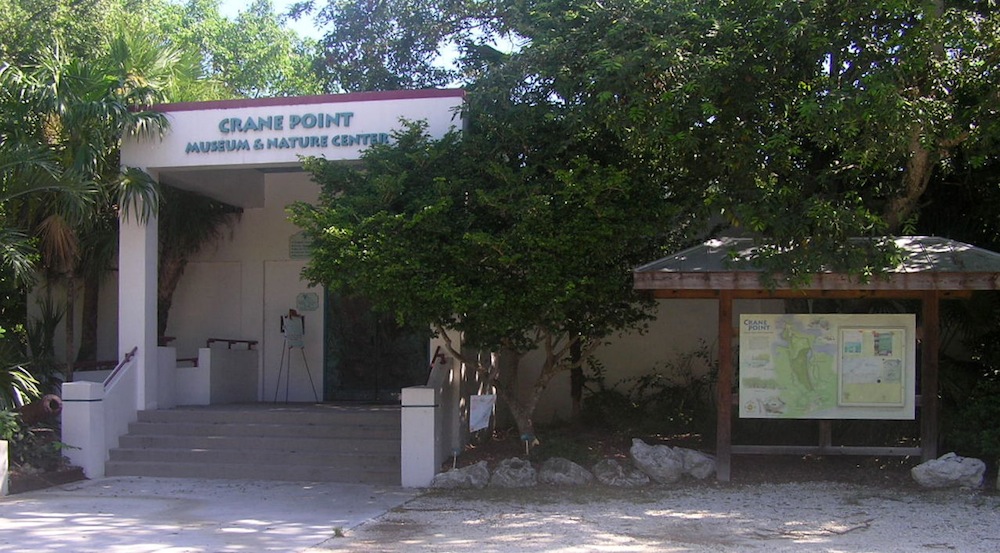Crane Point Points Fingers
When the Department of Economic Opportunity, source of a $ 727,000 Community Development Block Grant to Marathon for the construction of a zip-line course at the Crane Point Nature Center, asked for justification for Crane Point’s delinquency in submitting two required and very late documents, board chair Jeff Smith wrote, “The delays are attributed to third party appellant actions regarding the Administrative Height Variance issued by the City’s Planning Director.”
Not exactly.
What Smith neglects to say is that the tardy environmental assessment was due to DEO in March 2013, and the wage decision request in June 2013. The appeal of the decision by Planning Director George Garrett to allow 46.25-foot high towers – nearly ten feet higher than Marathon allows – began in July 2013, well after Crane Point’s deadlines.
But the problems didn’t begin in 2013 or even 2014. In fact, Crane Point’s inability to meet deadlines and produce acceptable work goes all the way back to 2011. And the result has been delay after delay after delay.
State says not so fast
It all started when Marathon submitted the initial application on behalf of Crane Point in 2011. Marathon had to be involved because DEO only awards grants to cities, which then partner with another entity, in this instance, the nonprofit Crane Point, the ultimate recipient.
DEO returned the application, citing deficiencies. It took seven weeks to get the application in shape to resubmit it. Both Crane Point and the local media downplayed that first stumble, saying there were merely “scrivener’s errors” in the document but actually, the application contained serious omissions.
Crane Point flubs TDC deadline
Also in 2011, the Tourist Development Council awarded an $ 85,000 grant for construction costs of the zip-line course. The funds were important because Crane Point had to bring some kind of match to the state award. However, Crane Point had made no progress by the time the TDC grant expired.
The TDC approved a nine-month extension and the Board of County Commissioners rubber stamped the approval, as is their custom. But when that extension was about to expire, Crane Point had yet to make progress and had to request a second extension. This time, the Board of County Commissioners took the rare step of overruling the TDC, voting unanimously to deny Crane Point’s request and pointing out that nothing had been accomplished on the project.
That denial in February of 2013 came exactly a year after the zip-line attraction was supposed to be in full operation.
City delays process even more
At the very end of 2012, Crane Point submitted a conditional use application to the city. The approval would be needed because Crane Point is zoned “conservation-native area,” intended for “passive resource-based recreation.” Not only did Garrett write an interpretation of passive recreation to make the zip line fit, but also he granted Crane Point’s request for the height variance for three or four of the towers.
However, in mid-January, Crane Point’s conditional use application was deemed insufficient by the planning department. Crane Point resubmitted it. . . on the deadline date to get on the planning commission’s agenda for April 15.
But that April 15 meeting, at which the planning commission would hear arguments for and against the conditional use application and the administrative height variance, had to be postponed. Why? Because the signs that Crane Point installed to alert neighbors and the public about the meeting did not meet the size requirements in the code. The session was rescheduled for May 6. At that meeting, the three commissioners present, the late Morgan Hill, Jim Tashjian, and Ralph Luciagno, voted to recommend that the city council approve the conditional use application and the administrative height variance despite significant gaps in the material.
Same as it ever was
The two delinquent documents to DEO tell only part of the story at the state level. According to the contract between DEO and Marathon, 19 tasks in addition to the environmental assessment and the wage decision request should have been completed by now. Crane Point has done only one: published an ad in the Keynoter inviting comments on flood plain and wetlands issues.
The fact that Crane Point has consistently missed deadlines and submitted sub-par work – at the local, county and state level – has raised questions about the organization’s ability to manage a project of the scale of the zip-line course, especially since Marathon taxpayers would be the financial backers of the grant. These missteps also clearly show that Crane Point should be pointing the finger at itself.
City runs out of patience
The city council is expected to discuss at its April 8 meeting whether to continue to give Crane Point until the end of October when the grant expires to show progress or to call a halt now.
In a surprising move, Calvin Knowles, the city’s CDBG consultant, has suggested that Marathon pull back now. Surprising because Knowles’ firm, Meridian Community Services Group, Inc., would stand to be paid well for his services in obtaining the grant. His suggestion indicates just how problematic the project has become. In a January 30 email to DEO, he wrote,
“I believe it is in the best interest of the City to submit an early closeout report on the CDBG ED contract, effectively closing the grant and deobligating the awarded funds . . . ”
The council meeting takes place at the Marathon Government Center at 5:30 p.m. on April 8. The appeal on the height variance is scheduled for Circuit Court on April 30th in Key West. [Full disclosure: my wife is one of the appellants.]
